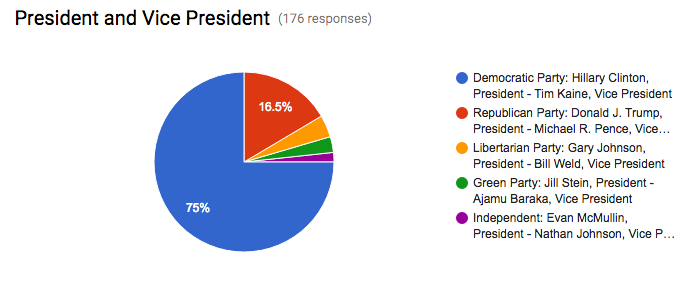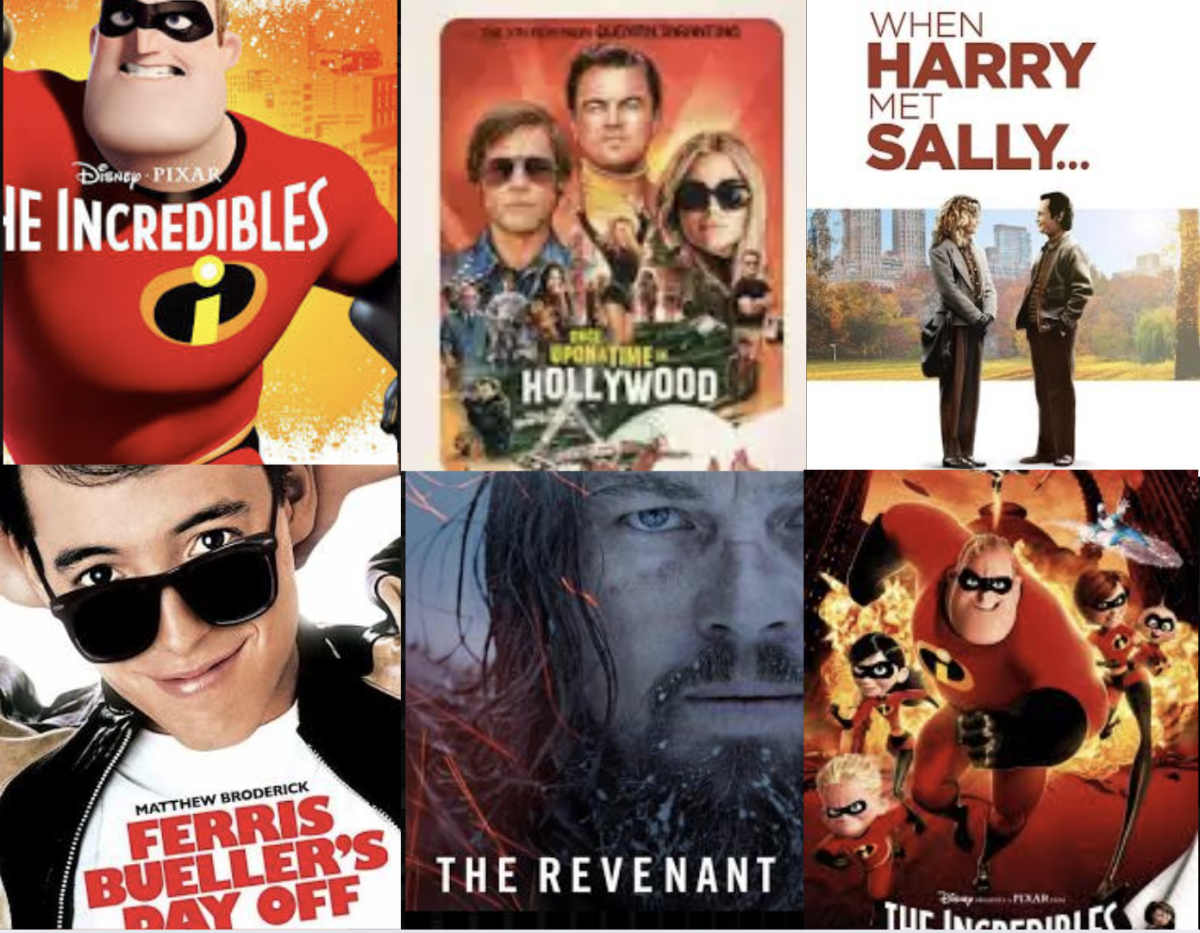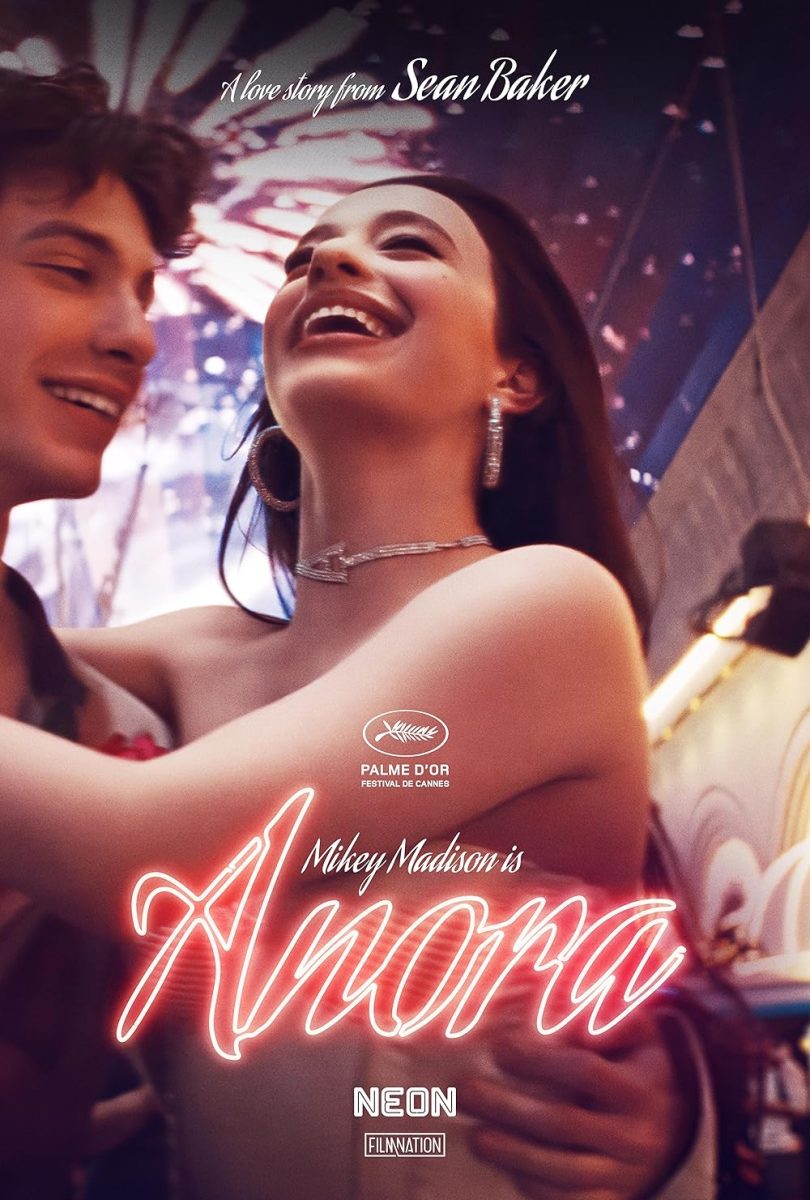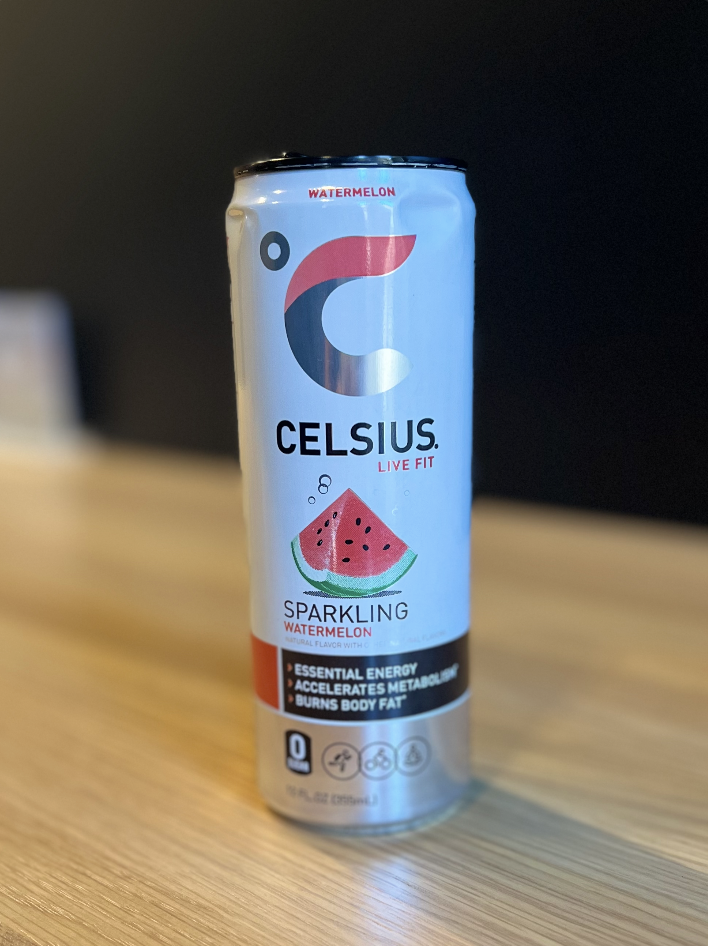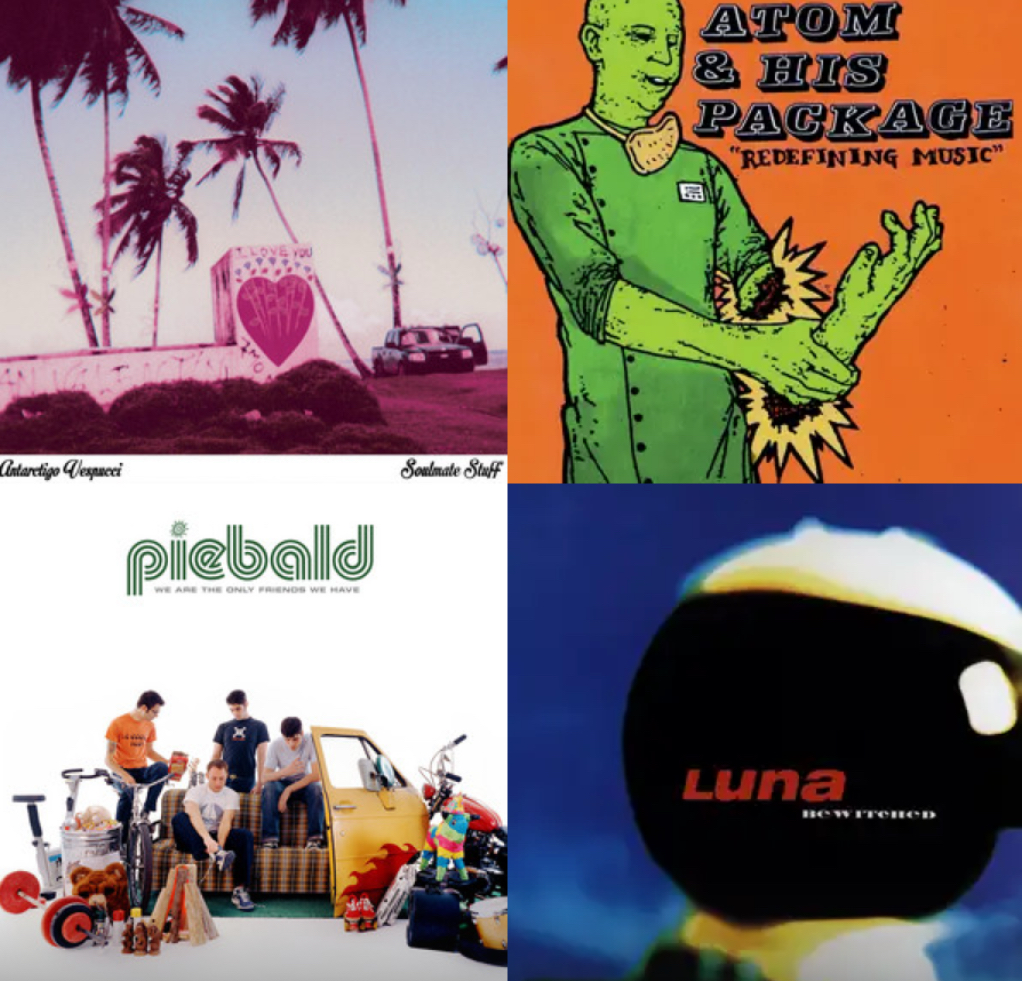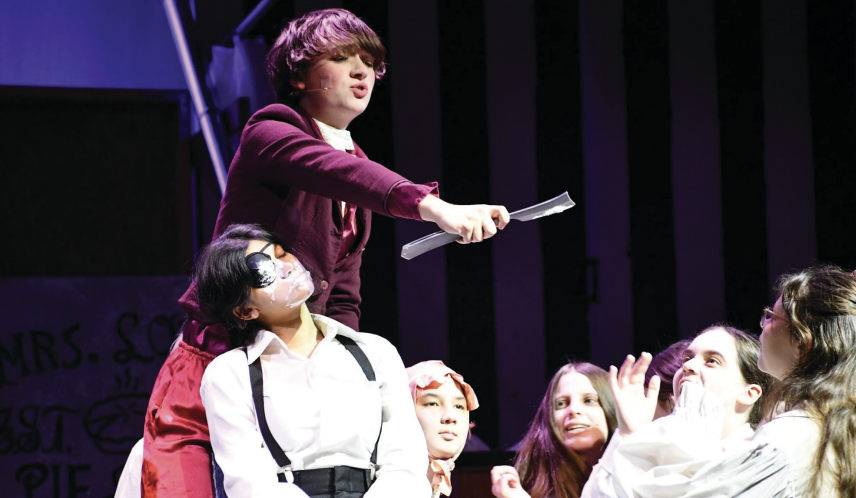After six days of polling, the 176 GM students who responded to The Lasso’s Mock Election survey selected Hillary Clinton as their choice as the President of the United States. The Lasso released a Mock Election poll on November 2, 2016 on Schoology and on The Lasso. Clinton won 75% of the school vote, winning by a 58.5% margin over Trump, who received 16.5% of the vote. In the City of Falls Church, Clinton received an almost identical 76% of the vote, while Trump received 17% of the vote.
These results reflected several things about the voting and ideological trends of Falls Church and its corresponding school populace.
First, it cemented Falls Church’s reputation as a liberal stronghold, considering our city voted for Clinton by one of the highest margins in the state, 26 percentage points above her statewide results. Additionally, the student body reflected this margin.
The results also indicated that either Trump is immensely unpopular in Falls Church, or Clinton is immensely popular because, defying trends throughout the state and country, Hillary received more votes here in 2016 than Obama did in 2012 and 2008.
Thirdly, the results showed that the student body is heavily influenced by the ideologies of the adult voting population, considering how similar the margin of victory was for Hillary Clinton in the school and city.
Additionally, on the ballot there were two proposed constitutional amendment questions and one question regarding the referendum authorizing issuance of bonds for a public library, which would include an archive/heritage center.
 The first proposed amendment would make it illegal for companies to mandate union membership. 48.4% of students voted yes and 51.6% voted no. In the City of Falls Church, 46.38% of the actual voters voted yes and 53.62% voted no.
The first proposed amendment would make it illegal for companies to mandate union membership. 48.4% of students voted yes and 51.6% voted no. In the City of Falls Church, 46.38% of the actual voters voted yes and 53.62% voted no.
A possible explanation for this sizable difference, at least compared to the election results, is that the students of George Mason were confused by, or uninterested in the amendment section of the Lasso poll.
“I understood what a union was but I was confused by the terms of the amendment because it was called ‘right to work’,” freshman Cole Hellert said. “I think unions should be supported, but I couldn’t tell what the amendment was saying because the ‘right to work’ part confused me, and I don’t remember what I ended up voting (on that question).”
Other students echoed this sentiment.
“I think that the term (the right to work) was totally leading, but the question was not so clear” sophomore Erik Boesen said.
“Yes, I that the term “right to work” was leading and made the amendment more confusing,” sophomore Casey Jenkins said.
Adults at the polls on voting day were more informed than Cole and other students through the flyers that were handed to them on election day that explained each amendment. This could explain why the actual voting body voted more consistently with their candidate of choice policies.
 The second proposed amendment stated that if a police officer, soldier or other emergency official died in the line of duty, their spouse would not have to pay property taxes for the rest of their life. 79.74% of GMHS students voted yes and 20.26% voted no. Similarly, 65.8% of the adult voting population supported the amendment and 34.2% voted against it.
The second proposed amendment stated that if a police officer, soldier or other emergency official died in the line of duty, their spouse would not have to pay property taxes for the rest of their life. 79.74% of GMHS students voted yes and 20.26% voted no. Similarly, 65.8% of the adult voting population supported the amendment and 34.2% voted against it.
Finally, the students of GMHS voted that Falls Church should not spend $8.7 million to expand or renovate certain projects in the city, such as the Mary Riley Styles Public Library; 48.4% voting yes and 51.6% voting no. However, 65.53% of the legal voters of City of Falls Church voted for it and only 34.47% voted against it, making the library renovation motion the only that the student body disagreed with voting population body on.
The voting trends of George Mason students were consistent overall with both the trends of the adult voting populace and the general platform of the Democratic Party.



